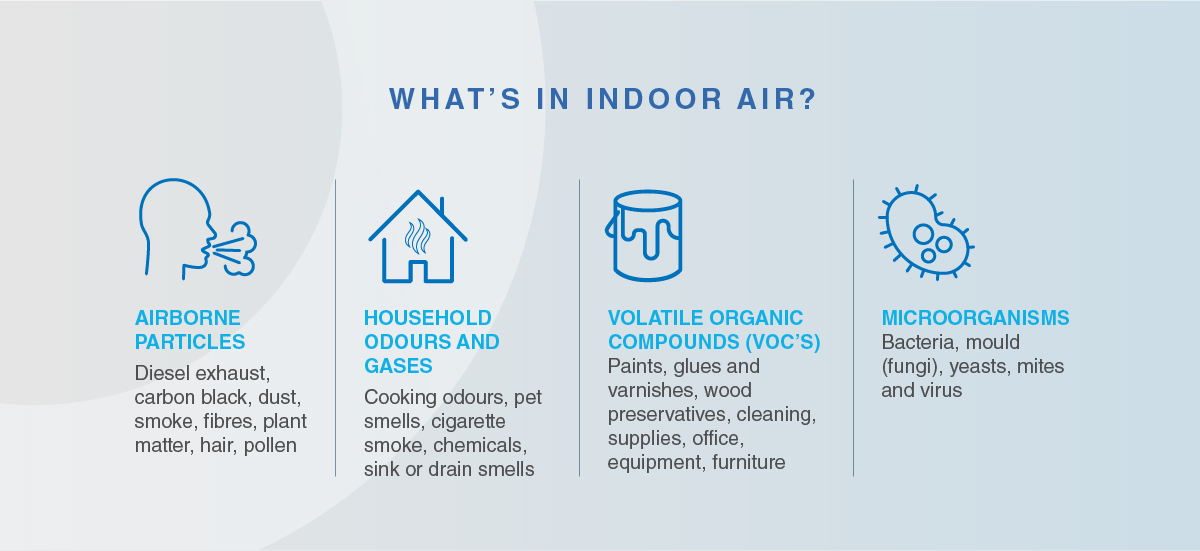

Local air quality affects how we live and breathe. Like the weather, it can change from day to day or even hour to hour. The U.S. Environmental Protection Agency (EPA) and our local air quality agency have been working to make information about outdoor air quality as easy to find and understand as weather forecasts. A key tool in this effort is the Air Quality Index or AQI. EPA and local officials use the AQI to provide simple information about your local air quality, how unhealthy air may affect you, and how you can protect your health.
AQI measures how polluted the air is and as AQI rises, health risks increase. Different Nations have their own AQI and health standards. Computation of the AQI requires the accurate measurement of an air pollutant concentration over a specified period, specifically ground-level ozone, particle pollution, Carbon Monoxide, and Sulfur Dioxide. Two micro pollutants particularly PM2.5 and PM10 are measured to determine AQI.
The AQI can increase due to a rise in harmful air emissions like during rush hour traffic, industrial production peak-time or crop burning. Also stagnant air, temperature changes, and low wind speeds lead to increased pollution levels.
Since the air inside our homes and offices often get trapped because of inadequate ventilation, the Indoor Air Quality (IAQ) can be much worse than the air quality outdoors. Again, since we have to take adequate measures like keeping the windows closed to reduce the dust and polluted air from outside entering inside, it becomes a tricky situation. An oxygen generator is a viable solution!
AQI measures how polluted the air is and as AQI rises, health risks increase. Different Nations have their own AQI and health standards. Computation of the AQI requires the accurate measurement of an air pollutant concentration over a specified period, specifically ground-level ozone, particle pollution, Carbon Monoxide, and Sulfur Dioxide. Two micro pollutants particularly PM2.5 and PM10 are measured to determine AQI.
The AQI can increase due to a rise in harmful air emissions like during rush hour traffic, industrial production peak-time or crop burning. Also stagnant air, temperature changes, and low wind speeds lead to increased pollution levels.
Since the air inside our homes and offices often get trapped because of inadequate ventilation, the Indoor Air Quality (IAQ) can be much worse than the air quality outdoors.

Think of the AQI as a yardstick that runs from 0 to 500. The higher the AQI value, the greater the level of air pollution and the greater the health concern. For example, an AQI value of 50 represents good air quality with little or no potential to affect public health, while an AQI value over 300 represents air quality so hazardous that everyone may experience serious effects. An AQI value of 100 generally corresponds to the national air quality standard for the pollutant, which is the level EPA has set to protect public health. AQI values at or below 100 are generally thought of as satisfactory. When AQI values are above 100, air quality is considered to be unhealthy—at first for certain sensitive groups of people, then for everyone as AQI values increase.
| Air Pollution Banding | Value | Accompanying health messages for at-risk individuals* | Accompanying health messages for the general population |
|---|---|---|---|
| Low | 1-3 | Enjoy your usual outdoor activities. | Enjoy your usual outdoor activities. |
| Moderate | 4-6 | Adults and children with lung problems, and adults with heart problems, who experience symptoms, should consider reducing strenuous physical activity, particularly outdoors. | Enjoy your usual outdoor activities. |
| High | 7-9 | Adults and children with lung problems, and adults with heart problems, should reduce strenuous physical exertion, particularly outdoors, and particularly if they experience symptoms. People with asthma may find they need to use their reliever inhaler more often. Older people should also reduce physical exertion. | Anyone experiencing discomfort such as sore eyes, cough or sore throat should consider reducing activity, particularly outdoors. |
| Very High | 10 | Adults and children with lung problems, adults with heart problems, and older people, should avoid strenuous physical activity. People with asthma may find they need to use their reliever inhaler more often. | Reduce physical exertion, particularly outdoors, especially if you experience symptoms such as cough or sore throat |
Poor AQI: targeting information to the groups known to be sensitive to that type of pollution. The alert provides advice to watch for symptoms, have reliever medicine nearby, and seek medical advice if symptoms get worse even after using reliever medication and resting. The alert also states whether remaining indoors will help to reduce exposure.
| Air Quality Index (AQI) | Colour indicator | What does it mean? |
|---|---|---|
| 0-33 | Very good | Enjoy normal activities. |
| 33-66 | Good | Enjoy normal activities. |
| 67-99 | Fair | People unusually senstive to air pollution should reduce or reschedule strenuous outdoor activities. Others are are not likely to be affected when the AQI is in this range. |
| 100-149 | Poor | Sensitive groups should reduce or reschedule strenuous outdoor activities. Other adults are not likely to be affected when the AQI is in this range. |
| 150-199 | Very poor | Sensitive groups should avoid strenuous outdoor activities. Other adults should reduce or reschedule strenous outdoor activities. |
| 200+ | Hazardous | Sensitive groups should avoid all outdoor activities. Other adults should avoid strenous outdoor activities. |
© 2020 Urbox. All Rights Reserved. JLSR WELLNESS PRIVATE LIMITED.